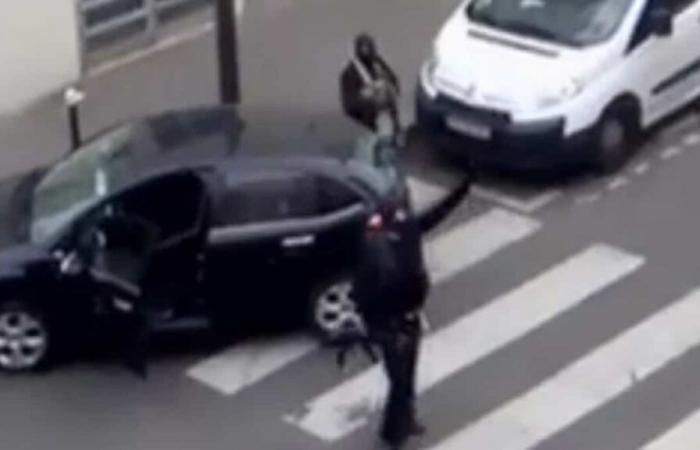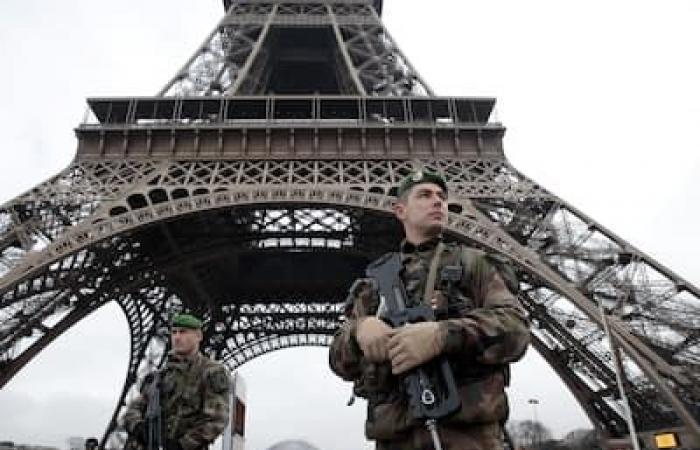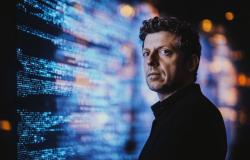At dawn of the 10e anniversary of the terrorist attack which decimated the editorial staff of Charlie Hebdothe artisans of the now famous French satirical newspaper still have to live on a daily basis with significant security measures. This is the price to pay, they believe, to continue to defend freedom of expression, despite the constant threats to which they are subject.
Nothing is left to chance, discovered The Journal during a series of interviews conducted with members of Charlie Hebdo and his former head of security.
The newspaper’s address is kept secret, it is not possible for the media to conduct interviews in its offices, and security agents accompany the stars of the newspaper. Charlie when participating in a public event.
• Also read: “Charlie Hebdo”, 10 years later: the Islamist threat has transformed
• Also read: “Charlie Hebdo”, 10 years later: employees must reassure their loved ones
• Also read: “They did not kill Charlie Hebdo,” says the editor-in-chief, Gérard Biard, ten years after the terrorist attack of January 7.
All this for having one day published caricatures of the Prophet Muhammad.
This cover of “Charlie Hebdo” sparked controversy.
Photo d’archives
“We work in a bunker,” confides Coline Renault, one of the new writers of Charlie.
“See, I’m in a room without windows,” reporter-cartoonist Juin says with amusement, on Zoom, before detailing his daily life.
“I pay attention to who I talk to in the street, who approaches me, who is behind me when I enter the newspaper. I don’t tell everyone I meet, or my neighbors, what I’m doing.”
“Astounding”
Charlie Hebdo was the subject of serious threats after publishing caricatures of the Prophet Muhammad in 2006. Its premises were targeted by an arson attack in 2011, so security measures had already been put in place before January 7, 2015 .
That day, two Islamist terrorists, the Chérif brothers and Saïd Kouachi, armed with assault rifles, managed to enter the newsroom of Charlie Hebdo and killed 12 people there, including the cartoonists Cabu, Charb, Honoré, Tignous and Wolinski.
Very quickly, “extreme” security measures were deployed to allow the publication to continue its activities. All movements of the newspaper’s artisans, in particular, had to be done under close surveillance.
Intense security measures were deployed after the Charlie Hebdo attack on January 7, 2015.
Photo d’archives
A decade later, the level of vigilance unfortunately could not be lowered.
According to an estimate from 2019, the cost of protecting Charlie Hebdo amounts to 1.5 million euros per year, payable by the newspaper (CA$2.2 million).
“That in 2025, we will be obliged to put in place such measures to prevent a tragedy from happening again and to allow people quite simply to use their freedom of thought, of expression, of writing, of drawing, it’s still astonishing,” says Éric Delbecque, who ensured the safety of Charlie Hebdo in the years following the attack.
A “not so high” price to pay
Certainly, security is a burden, but Juin, who joined the editorial staff of Charlie Hebdo a few months after January 7, does not see it as an obstacle.
“My work is creative, I can suggest whatever I want to the newspaper. If that’s the price to pay, it’s not very high.”
Arriving in 2023, and therefore among the youngest talents of the newspaper, Coline Renault claims to feel confident to the point where she refused to use an assumed name to sign her reports.
“There is no problem to say if we are afraid, if we do not want to participate in an event outside the newspaper, if we do not want to have our photo. We were offered several times to sign under a pseudonym. They are very respectful of everyone’s fears and feelings. But for me, it wasn’t a question, because the premises are still very well protected.”
Persona non grata in Turkey
Work for Charlie Hebdo is still not an easy job. Coline Renault noticed this when she wrote a report on the Turkish diaspora after the controversial publication of caricatures of President Erdogan.
“I said to myself: oh, this one, it might go badly. I still signed it under my name, but afterwards I realized that I could no longer go to Türkiye.”
Juin, for his part, suffered the wrath of Catholics after having drawn a Holy Virgin covered in postules after having contracted monkeypox.
“I was told that I was going to roast in hell, but also that they were praying for my salvation. It was quite schizophrenic. I also received vials of small plastic Virgins with holy water in them. It’s better than a coffin.”
Censorship? Not
Despite the threats, all the artisans interviewed by The Journal ensure that there is no self-censorship among Charlie Hebdo.
“If we choose to come to Charlie Hebdoand it’s even more true since 2015 obviously, it’s because we want to be there and not elsewhere. From this perspective, self-censorship has no place,” summarizes the editor-in-chief, Gérard Biard.







